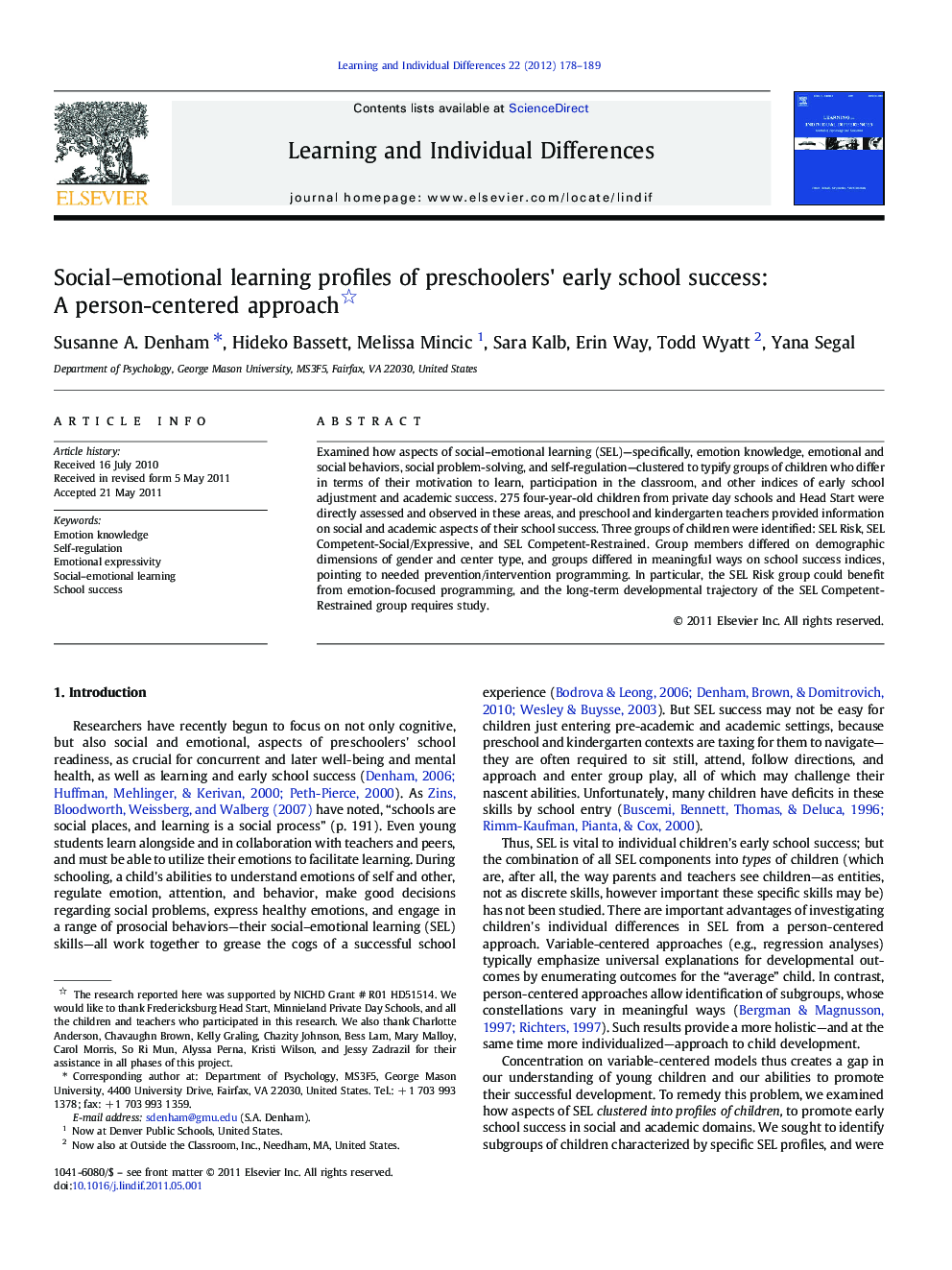| Article ID | Journal | Published Year | Pages | File Type |
|---|---|---|---|---|
| 364934 | Learning and Individual Differences | 2012 | 12 Pages |
Examined how aspects of social–emotional learning (SEL)—specifically, emotion knowledge, emotional and social behaviors, social problem-solving, and self-regulation—clustered to typify groups of children who differ in terms of their motivation to learn, participation in the classroom, and other indices of early school adjustment and academic success. 275 four-year-old children from private day schools and Head Start were directly assessed and observed in these areas, and preschool and kindergarten teachers provided information on social and academic aspects of their school success. Three groups of children were identified: SEL Risk, SEL Competent-Social/Expressive, and SEL Competent-Restrained. Group members differed on demographic dimensions of gender and center type, and groups differed in meaningful ways on school success indices, pointing to needed prevention/intervention programming. In particular, the SEL Risk group could benefit from emotion-focused programming, and the long-term developmental trajectory of the SEL Competent-Restrained group requires study.
Research highlights► Preschooler's social–emotional learning can be described in a person-centered way. ► Groups described show sex, race, and/or poverty risk differences. ► Accounting for demographic differences, groups differ on current/later teacher reports of school success. ► Person-centered analyses point toward emotion-based prevention/intervention programming.
